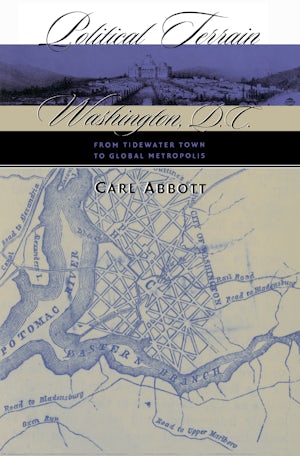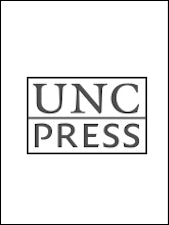Political Terrain
Washington, D.C., from Tidewater Town to Global Metropolis
By Carl Abbott
272 pp., 6 x 9, 16 illus., 9 tables, 14 maps, notes, bibl., index
-
Paperback ISBN: 978-0-8078-4805-0
Published: June 1999 -
E-book EPUB ISBN: 978-0-8078-7569-8
Published: October 2005 -
E-book PDF ISBN: 979-8-8908-7054-4
Published: October 2005
Buy this Book
- Paperback $47.50
- E-Book $29.99
For Professors:
Free E-Exam Copies
Awards & distinctions
2001 Lewis Mumford Prize, Society of American City and Regional Planning
In an exploration of the many identities Washington has taken on over time, Carl Abbott examines the ways in which the city's regional orientation and national symbolism have been interpreted by novelists and business boosters, architects and blues artists, map makers and politicians. Each generation of residents and visitors has redefined Washington, he says, but in ways that have utilized or preserved its past. The nation's capital is a city whose history lives in its neighborhoods, people, and planning, as well as in its monuments and museums.
About the Author
Carl Abbott is professor of urban studies and planning at Portland State University. His books include The Metropolitan Frontier: Cities in the Modern American West and The New Urban America: Growth and Politics in Sunbelt Cities.
For more information about Carl Abbott, visit
the
Author
Page.
Reviews
"Abbott tells his history in an easy narrative of local and national events, enriched by repeated references to contemporary fiction. Beneath the vignettes of visitors and residents lies a solid framework of analysis."—The Journal of American History
"This provocative book does much to complicate our ideas about the city, arguing for its paradoxical modernity and its underexamined similarities to the cities of the modern sunbelt."—Journal of Interdisciplinary History
"Abbott's outline and analysis of the city's development . . . is lucid and revealing."—Jonathan Yardley, Washington Post Book World
"In Political Terrain, Carl Abbott takes a completely fresh look at the nation's capital in global as well as regional terms. In examining the contested social construction of Washington's identity, he explores issues central to national character. After reading this book, no one will see Washington in quite the same way."—Howard Gillette Jr., George Washington University




